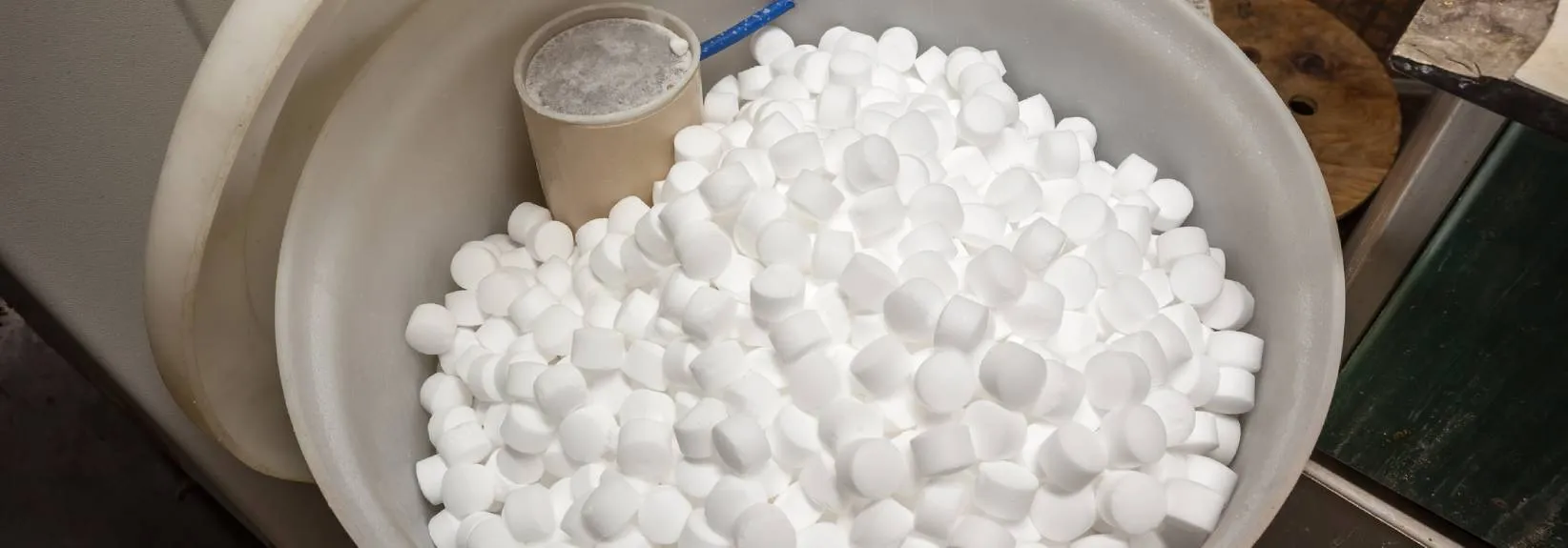Do I Really Need a Water Softener or Is an Inline Filter Sufficient?
We all need clean water for everyday routines like cooking, cleaning and personal hygiene. Many Calgary homeowners ask themselves which is best—a water filter or a water softener? Examine the primary differences between inline water filters and whole-house water softeners, the benefits they provide and how to decide which one is best for your needs.
What Is an Inline Water Filter?
An inline water filter is a point-of-entry filtration system that cleans water as it comes into your house. It’s installed on your main water line, removing sediment, chlorine, bacteria and other impurities from the municipal water supply before it moves into your plumbing fixtures and appliances.
Benefits of Water Filters
If your water comes from a municipal provider, you may ask yourself why you might need an inline water filter. After all, the water is cleaned at a water treatment plant. Unfortunately, many local water supplies barely meet EPA standards, and water may be contaminated with pollutants between the treatment plant and your residence. Here’s how setting up a water filter can improve the water in your home:
- Healthier water: Water filters take away unhealthy microorganisms, carcinogenic materials and other potentially harmful particles for safer, better-tasting drinking water.
- Reduced sediment: Water filters minimize sediment buildup in your pipes, appliances and fixtures, defending them from wear and tear.
- No plastic waste: Inline water filters reduce the need for bottled water, adding to a greener environment.
- Cost-effectiveness: Access to clean, safe tap water saves you from spending extra cash on bottled water and decreases the stress on your plumbing system.
How to Tell if You Need a Whole-House Water Filter
About one-third of American households use home treatment systems for quality drinking water. Here are some telltale indicators that you might need to get a whole-house water filter:
- Discoloration, unusual taste or nasty smell: If your tap water is anything but absolutely clear, clean-tasting and odor-free, it may be contaminated. Consider adding a filter for your safety.
- Constant plumbing issues: A whole-house water filter helps alleviate blocked pipes, low water pressure and other troubles.
- Skin irritation: If you notice anyone in your household is suffering from redness, rashes or other skin issues attributed to poor water quality, a whole-house water filter may be useful.
- Past history: Does your local water supply have a background of contamination? Installing a whole-house water filter can give you peace of mind against future problems.
What Is a Water Softener?
A water softener removes calcium and magnesium from your water supply. A process called ion exchange operates somewhat like a chemical magnet, replacing these “hard” minerals with sodium ions to “soften” the water.
Benefits of Water Softeners
If you have hard water, here is what you’ll notice once you put in a water softener:
- Longer plumbing life span: Soft water reduces scale buildup on faucets, showerheads, dishwashers and washing machines, extending their life span and bettering their appearance.
- Clog-free plumbing: Soft water doesn’t cause a hard mineral coating to adhere to your plumbing system, which helps keep your pipes and faucets flowing effortlessly.
- Better soap lathering: Soft water ensures cleaning products lather more effectively, generating cleaner dishes, brighter laundry, and softer skin and hair, even with less soap and detergent.
- Energy savings: A water softener helps your plumbing appliances operate efficiently for lower energy charges.
How to Tell if You Need a Water Softener
Most water reserves in North America are characterized as moderately hard, hard or very hard. A good way to find out about the quality of water in your home is by reading your city’s water quality report. In the meantime, here are some signs that you could use a water softener:
- Scale buildup: A white, chalky residue on your fixtures and appliances is an indication of hard water, as are the white spots on your dishes, glass shower door and coffee maker. A water softener can help.
- Low water pressure: Showerheads and faucet aerators frequently become severely clogged by mineral deposits within 18 months of use. Watch for this because it is a sign of hard water.
- Dry skin and hair: Hard water hinders soap from rinsing correctly, resulting in irritated skin and brittle hair.
- Frequent appliance repairs: If your dishwasher or water heater malfunctions frequently due to scale buildup, a water softener may be a worthwhile acquisition.
Should You Buy Both a Water Filter and a Water Softener?
Inline water filters and water softeners each provide valuable benefits, but they perform different jobs. An inline water filter removes contaminants and boosts overall water quality, while a water softener specifically removes hard minerals. Sometimes, using a water filter and a water softener is appropriate. Consider your specific needs and water quality to determine the best solution for your household.
Schedule Water Filter and Water Softener Installation in Calgary
Enercare Central Aire is a respected provider of water treatment solutions in Calgary, carrying high-quality water filters and water softeners from Excalibur. Our skilled specialists can help you evaluate if one or both solutions are necessary to help you get the best water quality in your Calgary home.


